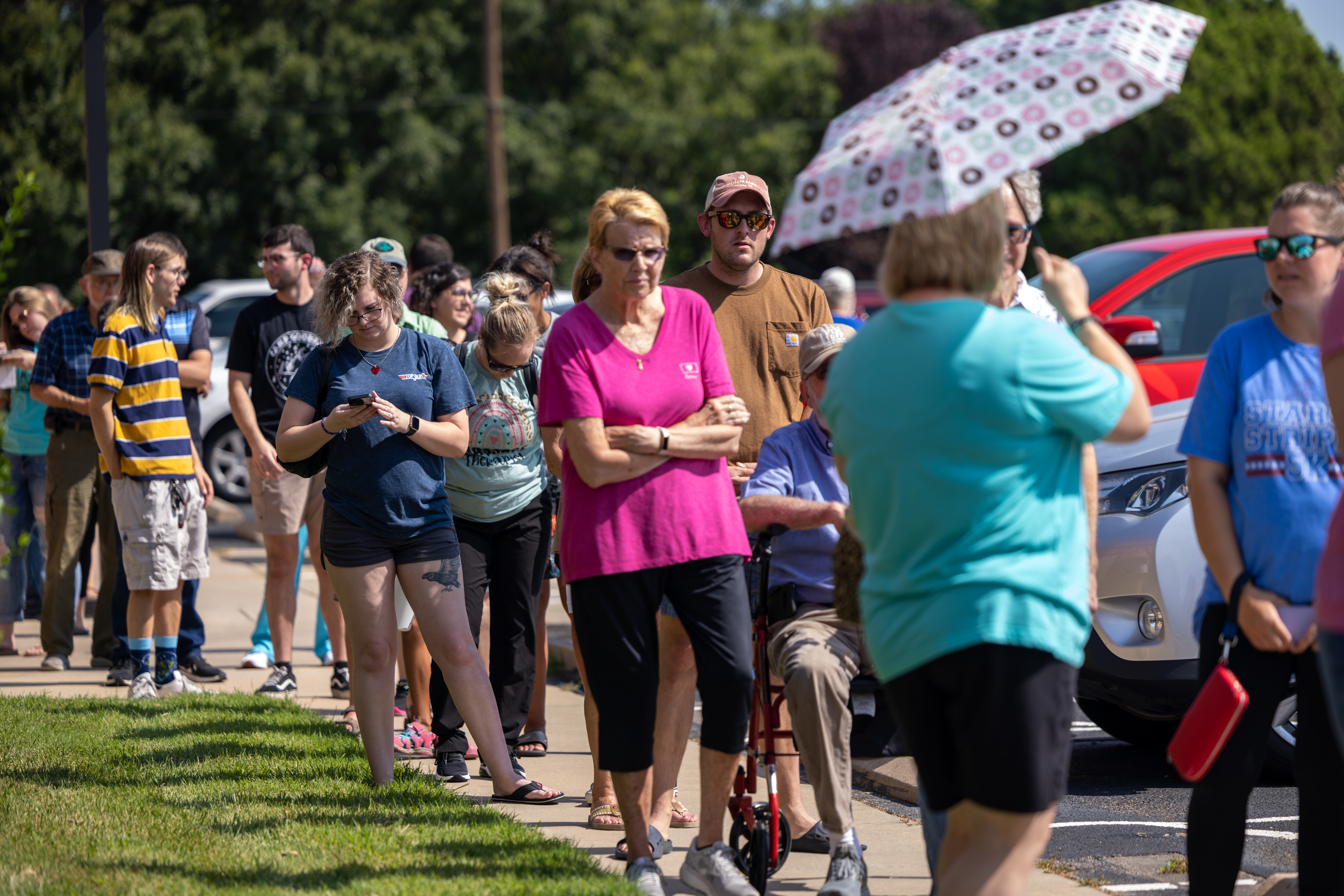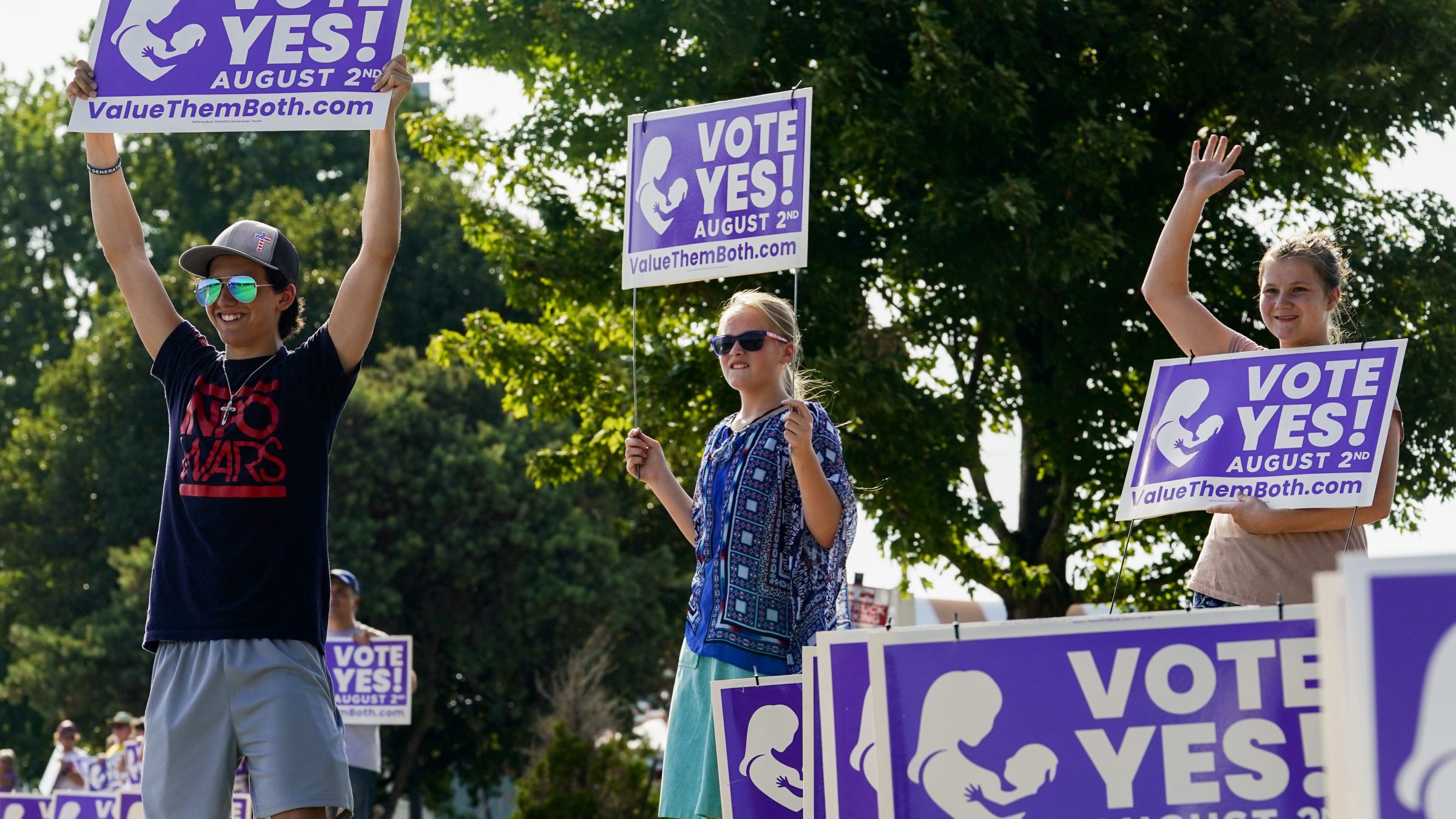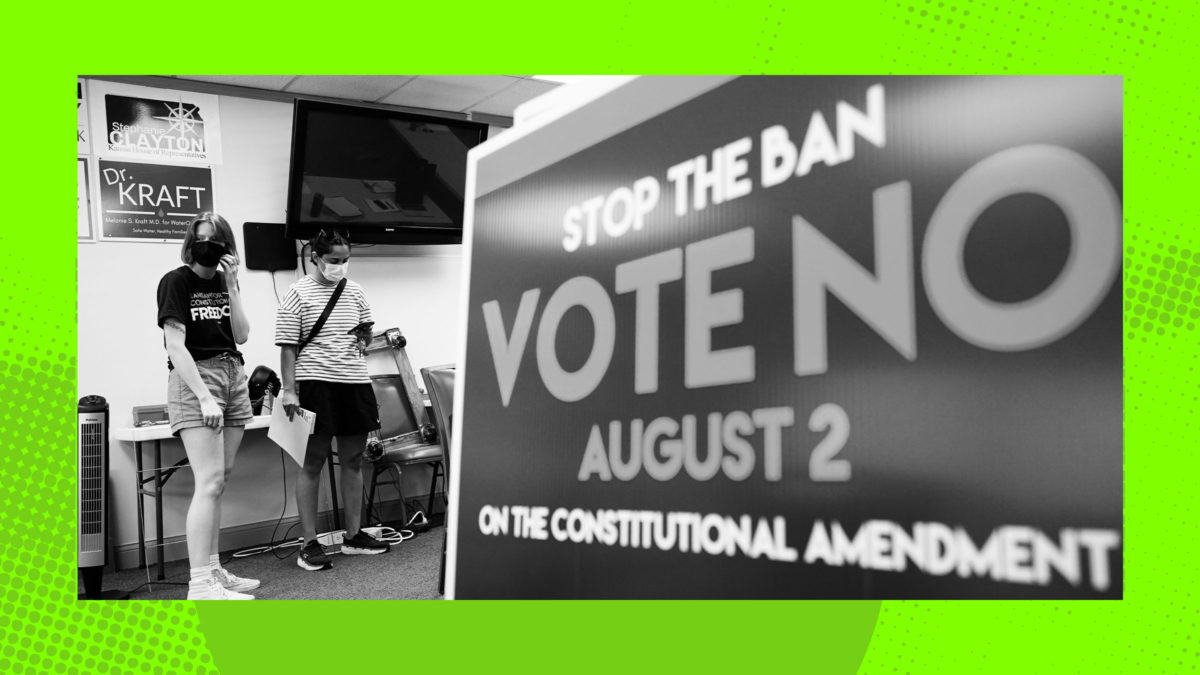In Justice Brett Kavanaugh’s concurring opinion in Dobbs v Jackson Women’s Health Organization, the upscale D.C. steakhouse refugee asserts that the Supreme Court’s decision to overturn Roe v Wade isn’t a raw exercise of judicial power, but a noble, principled return to democratic ideals. “The Constitution does not take sides on the issue of abortion,” he wrote. “The Court’s decision today restores the people’s authority to address the issue of abortion through the processes of democratic self-government.”
This week, voters in Kansas took part in a little democracy and told Brett Kavanaugh to shove it. By a resounding 59-41 margin, they rejected a ballot initiative that would have amended the state’s constitution to allow for more restrictive abortion laws, including a possible outright ban on abortion. Kansas has not gone for a Democratic presidential nominee since 1964, and Trump won it by 15 points in 2020. But as this vote shows, the struggle for civil rights is more complicated than Electoral College outcomes.
“I don’t believe that [Kansas] is this deep red state. I believe that Kansas is a deeply oppressed state,” says Melissa Stiehler, who worked with Vote Neigh, an organization of young people who opposed the amendment. “The state legislature doesn’t do what is popular to the people of Kansas.”
Well before Dobbs, Kansas lawmakers had passed a number of restrictions on abortion, including a ban on almost all abortions after 20 weeks and the requirement that a pregnant person get a pre-abortion ultrasound. But in 2019, the Kansas Supreme Court ruled that further restrictions passed by the state legislature were illegal on the basis that the state constitution protected the right to an abortion. Republican lawmakers and anti-abortion interest groups responded to the decision by proposing a constitutional amendment to overrule it.

Voters line up at a polling place in Wichita on August 2, 2022 (Photo by Nathan Posner/Anadolu Agency via Getty Images)
Their first attempt in 2020 failed, after state lawmakers could not garner the legislative supermajority required under Kansas law to get the amendment on the ballot. In 2021, after a few moderate Republicans were replaced by staunchly anti-choice lawmakers, the conservative bloc was successful in placing the amendment on this year’s ballot. Value Them Both, an anti-abortion umbrella organization that advanced the amendment to “protect women and babies,” posted on Facebook in late July that it would prevent the “abortion industry and radical left” from imposing “their extreme agenda to bring late-term, taxpayer-funded abortions to Kansas.”
By holding the referendum in an August primary, when turnout is typically low and typically Republican, GOP lawmakers hoped to coast to victory. But voters turned out in record numbers to reject the imposition of a forced-birth dystopia on pregnant people: More than 900,000 Kansans voted on the amendment, the largest number in the state’s history. Counties voted “no” by a margin of nine points higher, on average, than they voted for Democratic Governor Laura Kelly in 2018. And in a state with just 500,000 registered Democrats and more than 500,000 votes cast to oppose the amendment, a significant number of Republican voters also rejected the initiative.
“Every political party, every age, every area” of Kansas was represented in “volunteer-led, direct voter contact efforts,” says Helena Buchmann, Field Director for Kansans for Constitutional Freedom, a non-partisan group of reproductive and civil rights organizations in the state that opposed the amendment. The Court’s decision in Dobbs has galvanized voters who believe in protecting bodily autonomy; as it turns out, a Republican Party fueled by anti-choice politics might not really like all that democratic self-government.

Pictured L-R: Loser, loser, loser (Photo by Kyle Rivas/Getty Images)
With a record number of abortion-related initiatives on state ballots this year, including in Kentucky, Montana, and California, it remains to be seen whether voters elsewhere will follow Kansas’s lead. But these encouraging results suggest that voters are seeing through Republican attempts to portray abortion protections as radical left-wing plots. Nationwide, polling shows that although opinions about abortion are nuanced and circumstance-specific, 85 percent of voters believe abortion should be legal in all or some circumstances. And regardless of their personal beliefs about abortion, when voters are asked what they want the experience to be like for a woman who does choose to have one, 95 percent say they want abortion to be safe, and 85 percent want it to be legal.
The amendment’s defeat in Kansas also highlights a fundamental weakness of the Republican Party: It needs the unelected and unaccountable branches of government to enact its agenda. Conservatives know that their pet policies—restricting choice, expanding gun rights, and overturning the results of valid democratic elections—are unpopular. By working for several decades to exploit our government’s least democratic institutions—gerrymandering, voter suppression, the filibuster, and a federal judiciary packed with conservative ideologues—Republicans aimed to ensure that they wouldn’t actually have to worry about what people want.
The results of the Kansas vote show what can happen when conservatives skirt the democratic process: As it turns out, a world in which 10-year-olds can be forced to give birth after they’ve been raped is not one in which many voters want to live. Promising to appoint Supreme Court justices who will make abortion bans possible might get the Fox News base excited and feel good on the campaign trail. But when the GOP’s regressive and oppressive agenda is on the ballot, particularly on issues of bodily autonomy and personal decisionmaking, people are far more skeptical. “You’ve got seriously anti-choice folks opposing the constitutional amendment, simply because it is fundamentally anti-democratic how [the Kansas state legislature] was trying to do it,” Steihler told me.
With Roe overturned and November midterms approaching, voters are attuned to new and localized political messaging about abortion. For anti-choice lawmakers, what happened in Kansas reinforces the necessity of control of anti-democratic levers of power in order to enact their policy agenda. For everyone else, values-based discussions about abortion, and good old democracy, may just do the trick.

